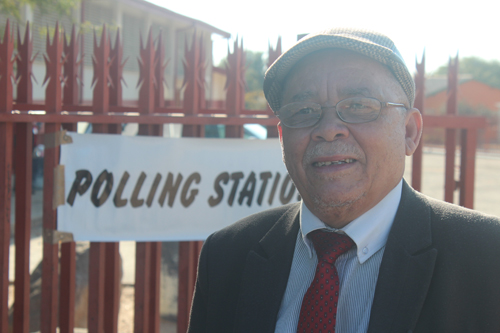In line with Vision 2030, Namibia shall be one of the industrialised nations of the world and thereby becoming the most competitive economy in Africa with the clear aim, that development shall be people-centred. As the first step in that direction in 2015, a governmental project known as the Ministry of Poverty Eradication and Social Welfare (today renamed as Ministry of Gender Equality, Poverty Eradication and Social Welfare) has been established.
So, this paper argues to strengthen and concretise, to actively pursue and participate in such political and economic visions and directives with the single aim to walk the talk so that we make poverty history in Namibia. The reason why we have created such a ministry is that in Namibia poverty is primarily systemic.
Take as a case study the San of Namibia. Due to poverty, San pupils are dropping at an alarming rate out of primary and secondary schools and thereby the next generation shall remain poor, marginalised and discriminated against as their parents. Therefore, the truth is that the shameful face of poverty is entrapping us all as Namibians and structural changes ought to be actively pursued with the understanding that the poor dictates the agenda for their own emancipation. Otherwise, the sad paradox that exists of an enrichment/impoverishment relationship, a zero-sum situation, in which the increased material well-being or prosperity of some necessarily entails diminishing wealth for others, remains in place. In other words, let us suggest that poverty of the many is a direct result of the undue affluence of a relative few.
Therefore, the dream, wisdom, philosophy and anthropology of Africa to put human beings at the heart of Ubuntu first and only thereafter power, politics, religion, sex, and economic or social status is the top priority on the agenda to make poverty history. Better expressed, poverty is understood as primarily systemic, produced by inadequate political, economic and social structural systems and total lack of effective planning and implementation.
Such systems are engineered by what is commonly known in Namibia as the black and white elitism that are technologically, economically, and politically well connected while majority of their comrades, sisters and brothers are living in absolute and relative poverty. Today, little is done to realistically and radically change the physical quality of life index (measured by infant mortality and life expectancy) and equality index (equal access to resources).
Instead, we are encountering, for example, Fishrot corruption scheme in Namibia.
In the heart of this shameful corruption scheme is the powerful elite that are designing methods through favouritism, nepotism, and cronyism in Namibia, and thereby creating structures of access to all the resources at the expense of the majority who remain marginalised, poor, and eagerly waiting upon handouts of food. Such situations remind us of the description of two houses by Karl Marx.
He said people are always satisfied with their own houses until the day “there arise next to the little house a palace and the little house shirks to a hut. The little house now makes it clear that its inmate has no social position at all to maintain…and the occupant of the relatively little house will always find himself/herself more uncomfortable, more dissatisfied, more cramped within his/her four walls”.
This is the length and breadth of corruption schemes that cause poverty and giving birth to overnight millionaires and the beginning of two houses in Namibia.
If disputed, the challenge remains to courageously pursue, without any restrictions, the famous catchphrase, “follow the money”. The issue of being poor and to live in poverty has to be changed in Namibia. Namibia has a relatively small population and rich in resources. As Africans, we are boasting with the Ubuntu philosophy.
As Christians, we are boasting with the name of Jesus. The same Jesus said in Matthew 25 to his followers to be workers that are in solidarity with the unemployed, hungry, homeless, sick and marginalised.
In short, it underscores the unbreakable link between sustainability, social-political-economic justice and participation in a democratic process so that “justice rolls down like water and righteous like an ever-flowing stream”.
Such African Anthropology, Politics, Philosophy, Sociology and Christian Faith shall enable us with God’s help to make poverty history in Namibia. The solution to making poverty history is cemented on such epistemological privilege of the poor.
In other words, the poor have historically played this creative role, and that because of their social position, they can play that role again today.
That means the possibility for social transformation is linked closely with the capacity of the poor to achieve their own emancipation, the liberation of the rich and the healing and wholeness of us all, including the whole creation so that rivers waters our freedom.
Or to paraphrase the words of Martin Luther King, let freedom rings and when this happens, when we allow freedom to ring we shall make poverty history and say with proudness: Free at last.


